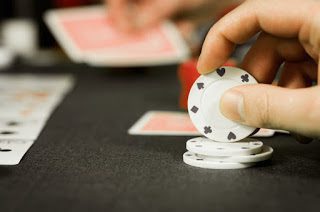Gambling is a social activity for millions of people. Many can go to a weekly poker game or to a casino and play $20 and leave regardless of winning or losing. If a person plays with any consistency, there is the chance that the person will cross over into compulsive gambling. Currently, there are an estimated 4 to 7 million individuals who gamble compulsively. Compulsive gambling is a problem and carries with it the same issues experienced by alcoholics and drug addicts.
Compulsive gambling can affect anyone and is a global problem. The compulsive side of gambling begins with someone thinking they can win if certain conditions are met. These are called gambling fallacies. A person might say, “I can win if I play a certain slot machine” or “I lost last week so this week must be my lucky week.” Compulsive gambling is also centered around reinforcements. If a gambler were to win or lose each time they gambled, they might not continue gambling. If a gambler loses and wins intermittently, the likelihood of continued gambling rises. The gambler does not know if they are going to win or lose, therefore, they keep playing. This can lead to compulsive gambling. The uncertainty of winning or losing keeps the gambler at the game.
Once the gambler becomes compulsive, gambling activity must happen regardless of the cost. The compulsive gambler will lie, cheat, and steal to continue to play their favorite game or games. Gambling becomes an obsession. It occupies thoughts and feelings all day, every day. If one does not have money to gamble, they will try to figure out ways to get money even through illegal activity. Many compulsive gamblers find themselves in deep financial holes and lose everything. They also experience divorce, job loss, and the trust of others. Many people who cannot deal with the loss of finances or relationships, may resort to suicide. If you are struggling with thoughts of suicide, please call the National Suicide Prevention Lifeline: 1-800-273-8255.
Many people think that compulsive gambling is not real as the individual does not ingest a substance or drink alcohol. Compulsive gambling is a real problem and can have the same effect as the person who needs a drink or a line of cocaine. When a compulsive gambler plays their favorite game or games, the reward center of their brain is activated. The gambler experiences a “high” similar to alcoholics and drug addicts. It is said that many continue to gamble despite negative consequences simply to feel this “high”. Others suggest that gamblers continue to gamble compulsively in order to win back the money they lost last week or last month. This is called “chasing losses.”
Regardless of the type of gambler or the game played, there is help available. Many compulsive gamblers find support through Gamblers Anonymous. Others may find help in group or individual therapy at a clinical treatment level. However a compulsive gambler finds his or her way to abstain from gambling, any treatment can help the compulsive gambling stop the gambling behavior.
Gambling is frequently co-occurring with substance use disorders. If you are struggling with a gambling disorder and have a co-occurring substance use disorder, you are not alone. Help is available. Cottonwood Tucson is a leader in the integrative approach to treating co-occurring disorders.
Call us today for information on our programs: (888) 727-0441







